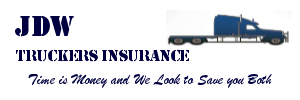Non-Owned Trailer Insurance vs Trailer Interchange (TI)
Non-owned trailer insurance and trailer interchange insurance are two distinct types of coverage within the realm of commercial trucking insurance. While they both provide protection for trailers, they serve different purposes and are intended for different scenarios.
- Non-Owned Trailer Insurance:
- Purpose: Non-owned trailer insurance provides coverage for trailers that are not owned by the motor carrier but are being used in the course of business operations. These trailers are typically owned by a third party, such as a customer or another trucking company.
- Coverage: This insurance covers physical damage to the non-owned trailer in the event of an accident, theft, vandalism, or other covered perils. It does not cover the cargo inside the trailer, as cargo insurance would handle that aspect.
- Scenario: Non-owned trailer insurance is essential when a motor carrier or owner-operator regularly uses trailers that belong to others. For example, if you are a carrier hauling a customer’s trailer or participating in a drop-and-hook operation where you pick up and drop off trailers provided by a partner or customer, non-owned trailer insurance is crucial.
- Ownership: Importantly, this insurance is relevant when you are using a trailer that you do not own. It safeguards you from financial responsibility for damages to the trailer itself.
- Trailer Interchange Insurance:
- Purpose: Trailer interchange insurance is specifically designed to cover trailers being used under a trailer interchange agreement. A trailer interchange agreement is a contract between motor carriers or owner-operators that specifies the terms and conditions for the use and transfer of trailers.
- Coverage: Trailer interchange insurance provides coverage for physical damage to the trailer being used under a trailer interchange agreement. It also covers any damage that may occur while the trailer is in your possession under the terms of the agreement.
- Scenario: Trailer interchange insurance is applicable when trailers are exchanged or transferred between motor carriers as part of a business arrangement. It ensures that the trailer owner is protected if the trailer is damaged while in the possession of another party.
- Ownership: In this case, the motor carrier may not own the trailer but is a party to a contractual agreement that involves the use and transfer of the trailer. Trailer interchange insurance is tailored to this specific scenario.
In summary, the primary differences between non-owned trailer insurance and trailer interchange insurance lie in their respective purposes, coverage scenarios, and ownership of the trailers:
- Non-owned trailer insurance covers trailers that are not owned by the motor carrier but are used in business operations where the motor carrier is responsible for physical damage to the trailer.
- Trailer interchange insurance is designed for trailers used under a trailer interchange agreement, where multiple motor carriers may exchange or transfer trailers according to a contractual arrangement.
Both types of insurance are essential in the commercial trucking industry to ensure that the parties involved are adequately protected in cases of trailer damage or loss. Motor carriers and owner-operators should carefully assess their operations and contractual agreements to determine which type of coverage is most appropriate for their specific needs. It’s also important to work with an experienced insurance provider who can tailor coverage to match the unique requirements of your trucking business.
